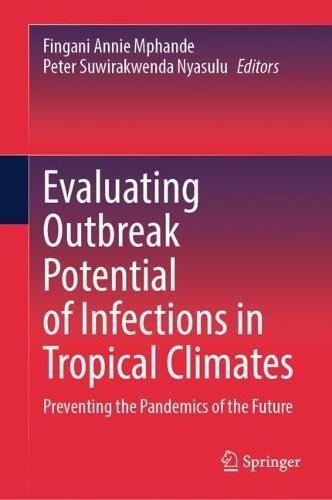Overview
This book is a unique compilation that considers tropical diseases, including neglected, emerging, and re-emerging diseases, in the broader context of public health in society in low and middle-income countries. The book conducts a post-COVID-19 review on various public health issues in these settings, including mental health in people living with HIV, to diagnostics and disease prevention in resource limited settings. Following the onslaught of SARS-CoV2 on the human race and the significant healthcare challenges faced in low and middle-income countries, the pandemic brought to light the value of understanding infectious diseases that have great potential to degenerate into pandemics, and cause significant morbidity and mortality. The authors advocate that a focused, effective response and approach is essential moving forward. This includes—but is not limited to—clinical as well as public health intervention, vaccine development, and confronting the challenges of vaccine delivery, in the contexts of differential social and cultural paradigms and beliefs. This book provides pathways for future responses to such similar infectious diseases pandemics. Topics include connections between migration and Ebola, a highly infectious, outbreak-prone disease with devastating consequences; the multifaceted impacts of rabies, a neglected tropical disease affecting populations especially in low resource settings, as well as cholera, an outbreak-prone disease affecting populations in humanitarian settings and low income countries. Connecting public health, medical practice and policy, mental health, and society, this book is relevant to practitioners and scholars working in public health arenas and in areas of migration, development studies, and mental health.
Full Product Details
Author: Fingani Annie Mphande ,
Peter Suwirakwenda Nyasulu
Publisher: Springer Verlag, Singapore
Imprint: Springer Verlag, Singapore
ISBN: 9789819506170
ISBN 10: 9819506174
Pages: 288
Publication Date: 02 November 2025
Audience:
Professional and scholarly
,
Professional & Vocational
Format: Hardback
Publisher's Status: Active
Availability: Not yet available

This item is yet to be released. You can pre-order this item and we will dispatch it to you upon its release.
Author Information
Fingani Annie Mphande is an assistant professor of Microbiology at the faculty of Medicine, King Mongkut’s Institute of Technology Ladkrabang, Bangkok, Thailand. A molecular microbiologist with over 15 years’ experience in public health and in infectious disease research in low- and middle-income countries, she has worked on infectious diseases including TB, malaria, and dengue fever in Malawi, Sweden, UK, New Caledonia, and Thailand. Her work focuses on infectious diseases affecting vulnerable populations and communities. She has authored several publications in peer reviewed journals including three books, Infectious Diseases and Rural Livelihood in Developing Countries (2016), Skin Disorders in Vulnerable Populations: Causes, Impacts and Challenges (2020) and Sustainable Health in Low and Middle Income Countries;Achieving SDG3 in the (Post) Pandemic World (2023). She holds a Ph.D. in infection biology from Karolinska Institutet, Stockholm Sweden, and M.Sc. in Applied Microbiology from University of Botswana, Gaborone, Botswana. Peter Suwirakwenda Nyasulu is a professor of Epidemiology at Stellenbosch University, Faculty of Medicine, and Health Sciences. He is a member of the American College of Epidemiology and an honorary associate professor of Epidemiology at the School of Public Health, Faculty of Health Sciences, University of the Witwatersrand, Johannesburg, South Africa. He has extensive experience in clinical and public health research with special research interest in control of communicable and non-communicable diseases as well as enhancing medical education as a catalyst for skills development in disease control and management. He has been teaching epidemiology and public health for more than a decade to both postgraduate and undergraduate students in various institutions in South Africa.



